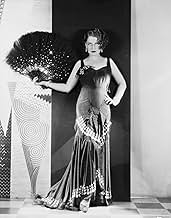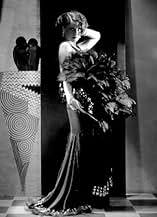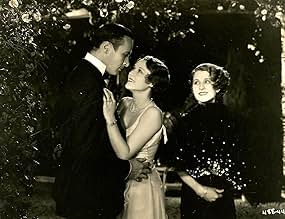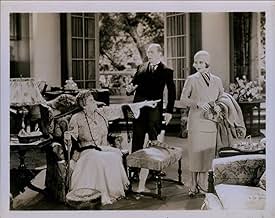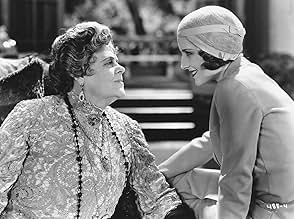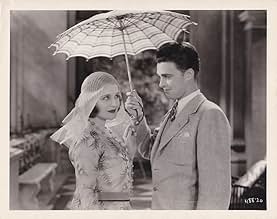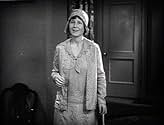Ama de casa descuidada se divorcia de su esposo tras la llegada de su amante. Se reinventa, convirtiéndose en un icono de la moda.Ama de casa descuidada se divorcia de su esposo tras la llegada de su amante. Se reinventa, convirtiéndose en un icono de la moda.Ama de casa descuidada se divorcia de su esposo tras la llegada de su amante. Se reinventa, convirtiéndose en un icono de la moda.
- Dirección
- Guionistas
- Elenco
- Premios
- 1 premio ganado en total
Rod La Rocque
- Bob Brown
- (as Rod LaRocque)
Tyrell Davis
- Wallace
- (as Tyrrell Davis)
William H. O'Brien
- Struthers
- (as William O'Brien)
Freddie Burke Frederick
- Bobby Brown - 8 Years Old
- (sin créditos)
Mary Gordon
- Mrs. McIntyre
- (sin créditos)
Marilyn Harris
- The Brown's Little Girl
- (sin créditos)
Helene Millard
- Helen Hibbard
- (sin créditos)
Dickie Moore
- Bobby Brown - 5 Years Old
- (sin créditos)
- Dirección
- Guionistas
- Todo el elenco y el equipo
- Producción, taquilla y más en IMDbPro
Opiniones destacadas
... because this is some bold fashion statement she is making here, four years before Bette Davis dared to look repulsive in "Of Human Bondage".
Kitty (Norma Shearer) is a somewhat overweight frumpy housefrau, devoted to her husband and kids. The husband, Bob (Rod La Roque), is kind to Kitty, but his passion belongs to his mistress. The mistress is getting tired of hiding matters, so she barges into the house and frankly tells Kitty what's been going on between the two of them. Kitty acts sophisticated and says she knows all about it, but deep down she is heartbroken. Bob asks for forgiveness and a second chance, but she flatly refuses.
Fast forward three years and socialite Mrs. Bouccicault (Marie Dressler) is entertaining at her Long Island estate. She's invited her good friend Kitty to come for the weekend and steal Bob away from her granddaughter, Diane (Sally Eiler), who is about to be married to someone closer to her own age and range of experience. Mrs. B has no idea that Kitty was ever married to Bob, so this is just a big coincidence. Kitty is now thin, fashionable, and confident and has no idea that she is supposed to be vamping her ex husband. Just how this transformation to head turner happened is never mentioned. For that matter, neither are her children! Well, they are alluded to from time to time, but they apparently are stashed somewhere that they cannot interfere with the jet setting of their parents before there was any such thing as jets.
When Kitty and Bob finally meet, they are genuinely surprised to see each other and sparks begin to fly. In Bob's case that means romance is on his mind, but in Kitty's case those sparks could mean she is considering burning him at the stake. How does this turn out? Watch and find out.
I don't know who cast the men in this film, but they are ponderous choices. Collectively they have the romantic appeal of the Pillsbury Doughboy without his flair for conversation and comedy. I will give it a small break because this was the first full year MGM was involved in talking film. The first act with Kitty as a frump and the last act are compelling, but it sags pretty badly in the middle and is mainly saved by Marie Dressler's performance as the eccentric socialite Mrs. B. Dressler steals the show in just about every scene she appears, as was often the case.
Kitty (Norma Shearer) is a somewhat overweight frumpy housefrau, devoted to her husband and kids. The husband, Bob (Rod La Roque), is kind to Kitty, but his passion belongs to his mistress. The mistress is getting tired of hiding matters, so she barges into the house and frankly tells Kitty what's been going on between the two of them. Kitty acts sophisticated and says she knows all about it, but deep down she is heartbroken. Bob asks for forgiveness and a second chance, but she flatly refuses.
Fast forward three years and socialite Mrs. Bouccicault (Marie Dressler) is entertaining at her Long Island estate. She's invited her good friend Kitty to come for the weekend and steal Bob away from her granddaughter, Diane (Sally Eiler), who is about to be married to someone closer to her own age and range of experience. Mrs. B has no idea that Kitty was ever married to Bob, so this is just a big coincidence. Kitty is now thin, fashionable, and confident and has no idea that she is supposed to be vamping her ex husband. Just how this transformation to head turner happened is never mentioned. For that matter, neither are her children! Well, they are alluded to from time to time, but they apparently are stashed somewhere that they cannot interfere with the jet setting of their parents before there was any such thing as jets.
When Kitty and Bob finally meet, they are genuinely surprised to see each other and sparks begin to fly. In Bob's case that means romance is on his mind, but in Kitty's case those sparks could mean she is considering burning him at the stake. How does this turn out? Watch and find out.
I don't know who cast the men in this film, but they are ponderous choices. Collectively they have the romantic appeal of the Pillsbury Doughboy without his flair for conversation and comedy. I will give it a small break because this was the first full year MGM was involved in talking film. The first act with Kitty as a frump and the last act are compelling, but it sags pretty badly in the middle and is mainly saved by Marie Dressler's performance as the eccentric socialite Mrs. B. Dressler steals the show in just about every scene she appears, as was often the case.
This comedy is very different to what you might expect. Its first ten minutes is the little drama that sets the scene but from then on it's a 1920s style drawing room farce, the type of thing you'd expect to hear the phrase: Anyone for tennis?
Surprisingly, once you get used to its theatrical style - necessary for this type of comedy, you might enjoy this. I didn't think I would but despite my initial reservations (were I around then, I'd have been watching Cagney at the Warner Brothers cinemas), I actually found myself laughing at this.
If someone asked you what 1930s movies were like, this type of picture would definitely not be what you'd think about. Today such gentle, gentile plays would play to empty houses but if you put yourself into the mindset of a 1929 theatre goer, you'll find this quite amusing: it's not what these days you'd call funny but it's not without some charm.
Like all of her films, this is another excuse for Irving Thalberg to say to the world: Have I got a hot wife or what! Inexplicably although Miss Shearer is no classic beauty, she somehow exudes 1.21 Gigawatts of sexuality. Don't know how she does it....maybe it's because she was such a good actress!
In this picture, Mrs T after divorcing her unfaithful husband reinvents herself as the most brazen, sex-hungry man eater you've ever seen outside of a Carry On film. The rest of the cast are the usual stock characters for this type of thing but it's made so well (ok, it's a bit creaky because it was made in 1930) it's a cut above the usual. As long as you know what you're going to get: the acting isn't meant to be naturalistic, it's in the style of a farce - it's actually quite entertaining.
Surprisingly, once you get used to its theatrical style - necessary for this type of comedy, you might enjoy this. I didn't think I would but despite my initial reservations (were I around then, I'd have been watching Cagney at the Warner Brothers cinemas), I actually found myself laughing at this.
If someone asked you what 1930s movies were like, this type of picture would definitely not be what you'd think about. Today such gentle, gentile plays would play to empty houses but if you put yourself into the mindset of a 1929 theatre goer, you'll find this quite amusing: it's not what these days you'd call funny but it's not without some charm.
Like all of her films, this is another excuse for Irving Thalberg to say to the world: Have I got a hot wife or what! Inexplicably although Miss Shearer is no classic beauty, she somehow exudes 1.21 Gigawatts of sexuality. Don't know how she does it....maybe it's because she was such a good actress!
In this picture, Mrs T after divorcing her unfaithful husband reinvents herself as the most brazen, sex-hungry man eater you've ever seen outside of a Carry On film. The rest of the cast are the usual stock characters for this type of thing but it's made so well (ok, it's a bit creaky because it was made in 1930) it's a cut above the usual. As long as you know what you're going to get: the acting isn't meant to be naturalistic, it's in the style of a farce - it's actually quite entertaining.
A rich old lady calls on a flirtatious divorcée to woo a Lothario away from her silly soon-to-be-married granddaughter.
LET US BE GAY is an interesting little domestic comedy which features some tart dialogue (courtesy of celebrated screenwriter Frances Marion) & good performances. While perhaps a bit mawkish at times, this can probably be blamed on the difficulties with early sound technology which tended to limit action & movement.
Norma Shearer can be credited with appearing in this minor film, rather than using her undoubted clout as Irving Thalberg's spouse to insist upon only A-grade pictures. She is especially effective in her first few scenes, where dowdy flat makeup makes her almost unrecognizable. Her extreme transmogrification from goose to swan could only happen in Hollywood, but it's scarcely profitable to spend much time worrying about that.
Rod LaRocque doesn't come off too well as Shearer's adulterous husband. Quite popular during Silent days, the talkies were not especially kind to him and his career would suffer. Here his role is not in the least sympathetic and one has to wonder what masochistic impulse moves women to desire the cad so much.
Magnificent Marie Dressler is on hand as an eccentric Long Island dowager. As a great friend of Frances Marion, one can easily imagine that the part was written expressly for her. Full of cranks & crotchets, she is very humorous. However, the tremendous warmth & essential goodness which would very shortly make her Hollywood's biggest star are largely missing.
Among the supporting cast, Hedda Hopper scores as a slinky society serpent, as does Wilfred Noy playing a comic butler. Movie mavens will spot little Dickie Moore as Shearer's young son & elderly Mary Gordon as her housekeeper, both uncredited.
LET US BE GAY is an interesting little domestic comedy which features some tart dialogue (courtesy of celebrated screenwriter Frances Marion) & good performances. While perhaps a bit mawkish at times, this can probably be blamed on the difficulties with early sound technology which tended to limit action & movement.
Norma Shearer can be credited with appearing in this minor film, rather than using her undoubted clout as Irving Thalberg's spouse to insist upon only A-grade pictures. She is especially effective in her first few scenes, where dowdy flat makeup makes her almost unrecognizable. Her extreme transmogrification from goose to swan could only happen in Hollywood, but it's scarcely profitable to spend much time worrying about that.
Rod LaRocque doesn't come off too well as Shearer's adulterous husband. Quite popular during Silent days, the talkies were not especially kind to him and his career would suffer. Here his role is not in the least sympathetic and one has to wonder what masochistic impulse moves women to desire the cad so much.
Magnificent Marie Dressler is on hand as an eccentric Long Island dowager. As a great friend of Frances Marion, one can easily imagine that the part was written expressly for her. Full of cranks & crotchets, she is very humorous. However, the tremendous warmth & essential goodness which would very shortly make her Hollywood's biggest star are largely missing.
Among the supporting cast, Hedda Hopper scores as a slinky society serpent, as does Wilfred Noy playing a comic butler. Movie mavens will spot little Dickie Moore as Shearer's young son & elderly Mary Gordon as her housekeeper, both uncredited.
The film begins with a dowdy housewife (Norma Shearer) finding out that her husband (Rod La Rocque) had been cheating on her. Three years pass and apparently they'd been divorced during these years due to the infidelity. Oddly, during this time, La Rocque did not see Shearer or his two kids as Shearer took them to Paris.
Marie Dressler is a rich society lady and she has invited a new and improved Norma to come to her house for the weekend--ostensibly to help Marie break up a budding romance between her daughter and La Rocque! Apparently, Norma is now a super-vamp and with her magical sex appeal, she can break up the romance--and no one seems to realize that she and La Rocque were married. Several others are there for the weekend and immediately Norma is a hit with her gay, carefree sexy ways--and almost all the men (including La Rocque) are captivated by her. Neither tells anyone that they were married but it's obvious that her ex- wants the new and improved Norma back! This film is a sophisticated comedy of manners among the upper-crust--similar in some ways to Jean Renoir's THE RULES OF THE GAME. Oddly, despite the severity of the Depression, such films about pretty rich folks were pretty popular though many today will doubtless find them a bit too droll in spots. However, fortunately, in LET US BE GAY, there are plenty of cute and funny moments (particularly towards the end when Marie Dressler shows her true colors). While not a great film, it certainly is a good one and more than just another time-passer. My only real regret is that I didn't love the very end. You'll just have to see it for yourself--perhaps you'll agree about the ending, perhaps you won't, but I'm pretty sure you will enjoy this clever film.
Marie Dressler is a rich society lady and she has invited a new and improved Norma to come to her house for the weekend--ostensibly to help Marie break up a budding romance between her daughter and La Rocque! Apparently, Norma is now a super-vamp and with her magical sex appeal, she can break up the romance--and no one seems to realize that she and La Rocque were married. Several others are there for the weekend and immediately Norma is a hit with her gay, carefree sexy ways--and almost all the men (including La Rocque) are captivated by her. Neither tells anyone that they were married but it's obvious that her ex- wants the new and improved Norma back! This film is a sophisticated comedy of manners among the upper-crust--similar in some ways to Jean Renoir's THE RULES OF THE GAME. Oddly, despite the severity of the Depression, such films about pretty rich folks were pretty popular though many today will doubtless find them a bit too droll in spots. However, fortunately, in LET US BE GAY, there are plenty of cute and funny moments (particularly towards the end when Marie Dressler shows her true colors). While not a great film, it certainly is a good one and more than just another time-passer. My only real regret is that I didn't love the very end. You'll just have to see it for yourself--perhaps you'll agree about the ending, perhaps you won't, but I'm pretty sure you will enjoy this clever film.
"Let Us Be Gay" is an early sound picture of comedy, romance and drama. Its production quality shows the strains of the first couple of years of the studios, even the big ones like MGM, in adapting to sound and other technical improvements in movies. For instance, there isn't much free movement and discussion among the cast in the few different settings. The confined speaking spaces were due to the stationary microphones. This film can serve as a good study in following the changes in movie technology and methods.
Norma Shearer was pregnant when this film was made, so MGM hurried its shooting - completing it in less than a month. The story is based on a play by American playwright Rachel Crothers. In places, it is melodrama, and in some others, it's silly or sappy. It's a classic use of innuendo regarding morals and loose living. And, it's a picture of marriage, infidelity and tested love. The setting for all of this is in the upper crust of society. One wonders how audiences received this film in the first year of the Great Depression.
The film has much humor - biting in places. The cynicism contributes to some hilarious scenes in which the players crack up among themselves. Those seem to be impromptu and authentic, and one wonders if they didn't happen that way on the set and the director decided to keep them instead of reshooting scenes. They give a sense of reality as something that happens among people in regular life, but that one seldom sees in scripted movies.
Most of the cast do well with one exception. Rod La Rocque is very wooden as Bob Brown. His voice especially seems to be that of a monotone robot. This is so obvious as to be nagging and distracting from any sincerity on his part. This is an instance when one role so affects the whole film negatively. La Rocque looked the part but just didn't or couldn't play it. Any number of other actors of the day would have been suited for that role.
Norma Shearer is Kitty Brown, whose makeup transformation is quite remarkable. Marie Dressler is Mrs. Bouccicault - Bouccy (pronounced, "Boo-see") as Kitty and others call her by nickname. She and Kitty dominate most of the scenes they are in together. Dressler truly was one of the greats of early cinema. Gilbert Emery is superb as Towney Townley, a carefree wealthy middle-aged bachelor who is smitten with Kitty. Hedda Hopper is a hoot as the very exaggerated stuffy and snobbish Madge Livingston. And, Tryrell Davis is very good and funny as the cowering Wallace Granger. Even the main butler and maid contribute to the humor in this film. The rest of the cast are fine
The best part of the film is the witty and cynical comedy in exchanges between Kitty and others, especially Bouccy and Towney. The plot is unique and good, and it has a different but nice ending for a Hollywood production even then. It reflects the undertone of true love, not just romance between a couple.
Here are some favorite lines from the film. For more witty and other dialog, see the Quotes section under this IMDb Web page of the movie.
Mrs. Bouccicault, "Towney, this is Mrs. Cortland-Brown. She's not as sweet as she looks. But, you'll think she is." Towney Townley, "How do you do. I am nicer than I look - much." Kitty Brown, "How could you be?"
Kitty Brown, "How do you do. Oh, you magnificent long-legged Britisher. I've been avoiding you in Paris. But you are wonderful, aren't you?" Towney Townley, "Yes, yes, we, we are, aren't we?" Kitty Brown, "I thought you said he was 'umble." Mrs. Bouccicault, "Hmm, hmm. This isn't the one." Kitty Brown, "Oh! You mean to say I have to say that all over again? Because that's the way I'm gonna begin."
Towney Townley, "Uh, begin what?" Kitty Brown, "Well, you see, uh, Bouccy has a certainly laid plan whereby I have to get a man. Now, would, uh, would that get you?" Towney Townley, "I don't remember what you said, but you have got me." Kitty Brown, "Oh, I like this one. Bouccy, make it this one." Bouccy, "All right, practice on him." Towney, "She doesn't seem to need practice."
Kitty Brown, "You must be a very smart person." Towney Townley, "You found me out."
Kitty Brown, starting a bridge game, "Who's going to pay my losses?" Towney Townley, "I shall be delighted. I love to have beautiful women under obligation to me."
Mrs. Bouccicault, "When you quote me, make it agreeable." Kitty Brown, "No one would believe you said it, lamb." Towney Townley, "One on you, my pet."
Mrs. Bouccicault, while a group is singing around Kitty at the piano, "Towney, is that you making that particularly bad noise?" Towney Townley, "No. I'm making the tenor." Bouccy, "Well, stop it." Kitty Brown, "Don't stop. You make the rest of us sound so good."
Towney Townley, "Kitty, you have the prettiest ears I ever saw. I wanted to kiss the right one all through dinner, especially with the salad." Whitman - 1st Butler, "Oh, Perkins. Mrs. Brown is leaving on the 11 o'clock train. It might be as well for you to assist her." Perkins, "That's just where I'm going, and without any suggestions from you."
Norma Shearer was pregnant when this film was made, so MGM hurried its shooting - completing it in less than a month. The story is based on a play by American playwright Rachel Crothers. In places, it is melodrama, and in some others, it's silly or sappy. It's a classic use of innuendo regarding morals and loose living. And, it's a picture of marriage, infidelity and tested love. The setting for all of this is in the upper crust of society. One wonders how audiences received this film in the first year of the Great Depression.
The film has much humor - biting in places. The cynicism contributes to some hilarious scenes in which the players crack up among themselves. Those seem to be impromptu and authentic, and one wonders if they didn't happen that way on the set and the director decided to keep them instead of reshooting scenes. They give a sense of reality as something that happens among people in regular life, but that one seldom sees in scripted movies.
Most of the cast do well with one exception. Rod La Rocque is very wooden as Bob Brown. His voice especially seems to be that of a monotone robot. This is so obvious as to be nagging and distracting from any sincerity on his part. This is an instance when one role so affects the whole film negatively. La Rocque looked the part but just didn't or couldn't play it. Any number of other actors of the day would have been suited for that role.
Norma Shearer is Kitty Brown, whose makeup transformation is quite remarkable. Marie Dressler is Mrs. Bouccicault - Bouccy (pronounced, "Boo-see") as Kitty and others call her by nickname. She and Kitty dominate most of the scenes they are in together. Dressler truly was one of the greats of early cinema. Gilbert Emery is superb as Towney Townley, a carefree wealthy middle-aged bachelor who is smitten with Kitty. Hedda Hopper is a hoot as the very exaggerated stuffy and snobbish Madge Livingston. And, Tryrell Davis is very good and funny as the cowering Wallace Granger. Even the main butler and maid contribute to the humor in this film. The rest of the cast are fine
The best part of the film is the witty and cynical comedy in exchanges between Kitty and others, especially Bouccy and Towney. The plot is unique and good, and it has a different but nice ending for a Hollywood production even then. It reflects the undertone of true love, not just romance between a couple.
Here are some favorite lines from the film. For more witty and other dialog, see the Quotes section under this IMDb Web page of the movie.
Mrs. Bouccicault, "Towney, this is Mrs. Cortland-Brown. She's not as sweet as she looks. But, you'll think she is." Towney Townley, "How do you do. I am nicer than I look - much." Kitty Brown, "How could you be?"
Kitty Brown, "How do you do. Oh, you magnificent long-legged Britisher. I've been avoiding you in Paris. But you are wonderful, aren't you?" Towney Townley, "Yes, yes, we, we are, aren't we?" Kitty Brown, "I thought you said he was 'umble." Mrs. Bouccicault, "Hmm, hmm. This isn't the one." Kitty Brown, "Oh! You mean to say I have to say that all over again? Because that's the way I'm gonna begin."
Towney Townley, "Uh, begin what?" Kitty Brown, "Well, you see, uh, Bouccy has a certainly laid plan whereby I have to get a man. Now, would, uh, would that get you?" Towney Townley, "I don't remember what you said, but you have got me." Kitty Brown, "Oh, I like this one. Bouccy, make it this one." Bouccy, "All right, practice on him." Towney, "She doesn't seem to need practice."
Kitty Brown, "You must be a very smart person." Towney Townley, "You found me out."
Kitty Brown, starting a bridge game, "Who's going to pay my losses?" Towney Townley, "I shall be delighted. I love to have beautiful women under obligation to me."
Mrs. Bouccicault, "When you quote me, make it agreeable." Kitty Brown, "No one would believe you said it, lamb." Towney Townley, "One on you, my pet."
Mrs. Bouccicault, while a group is singing around Kitty at the piano, "Towney, is that you making that particularly bad noise?" Towney Townley, "No. I'm making the tenor." Bouccy, "Well, stop it." Kitty Brown, "Don't stop. You make the rest of us sound so good."
Towney Townley, "Kitty, you have the prettiest ears I ever saw. I wanted to kiss the right one all through dinner, especially with the salad." Whitman - 1st Butler, "Oh, Perkins. Mrs. Brown is leaving on the 11 o'clock train. It might be as well for you to assist her." Perkins, "That's just where I'm going, and without any suggestions from you."
¿Sabías que…?
- TriviaAt the time of its release, this film features the next two actresses to win Best Actress at the Academy Awards, Norma Shearer would win at the ceremony later that year for La divorciada (1930), and Marie Dressler the year after for Min and Bill (1930).
- ErroresNear the end of the film, just after the children depart with Boucci and their nurse, a shadow of the boom microphone falls across a column to the right of the scene.
- Citas
Mrs. Katherine Brown: For Heaven's sake, let's be gay about this!
- ConexionesAlternate-language version of Soyons gais (1930)
- Bandas sonorasOh Where Oh Where Has My Little Dog Gone
(1864) (uncredited)
Written by Septimus Winner
Sung a cappella by Rod La Rocque with modified lyrics
Selecciones populares
Inicia sesión para calificar y agrega a la lista de videos para obtener recomendaciones personalizadas
- How long is Let Us Be Gay?Con tecnología de Alexa
Detalles
- Fecha de lanzamiento
- País de origen
- Idioma
- También se conoce como
- Konsten att behålla en man
- Locaciones de filmación
- Productora
- Ver más créditos de la compañía en IMDbPro
- Tiempo de ejecución1 hora 19 minutos
- Color
Contribuir a esta página
Sugiere una edición o agrega el contenido que falta

Principales brechas de datos
By what name was Let Us Be Gay (1930) officially released in India in English?
Responda
